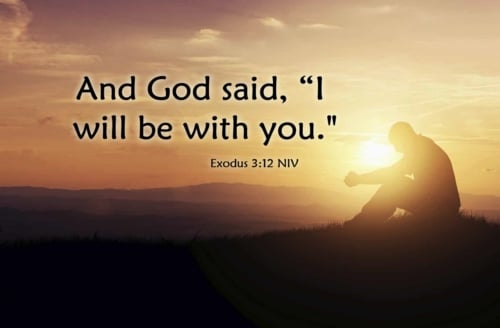So now, go. I am sending you to Pharaoh to bring my people the Israelites out of Egypt.”
Exodus 3:10-12a NIV
But Moses said to God, “Who am I that I should go to Pharaoh and bring the Israelites out of Egypt?”
And God said, “I will be with you.
God had called Moses out of the burning bush and commissioned him to go back to Egypt to bring the Israelites out of slavery. But Moses balked. He had earlier fled from Egypt out of fear for his life, and by this point had been a wandering shepherd for 40 years. And he was less than enthused about returning to Egypt to confront the Pharaoh. His response to God was “Who am I, that I should be the one to go and do this thing?” In other words, send someone else.
God’s response to him ignored any lack of qualifications Moses might have had. Instead, he told him, “I will be with you.” That’s all he needed; God’s presence. Eventually, he returned, confronted Pharaoh, saw God’s hand at work in Egypt, and led Israel out of Egypt and back to Sinai.
The lesson in this is that if God has called me to do something, he will be with me. And if he is with me, then my qualifications and abilities are irrelevant. Don’t let your perceived weaknesses keep you sidelined. Learn to echo Paul’s proclamation when confronted with his own weakness.
But [God] said to me, “My grace is sufficient for you, for my power is made perfect in weakness.” Therefore I will boast all the more gladly about my weaknesses, so that Christ’s power may rest on me. That is why, for Christ’s sake, I delight in weaknesses, in insults, in hardships, in persecutions, in difficulties. For when I am weak, then I am strong.
2 Corinthians 12:8-10 NIV


On time word